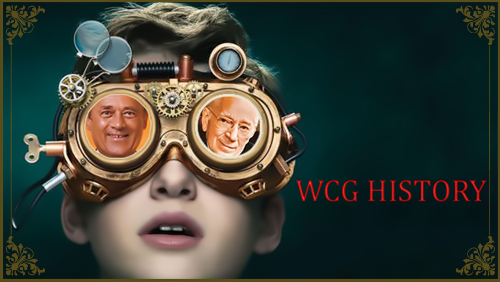The following is a most excellent article. Just know that the Painful Truth will always keep exposing the armstrong brand of religion in all its glorious corruption and deception.
In the beginning, Matthew Crawford believed in nothing.
“The question of God wasn’t even on the radar,” the best-selling author told me.
He was 8 when his parents split, and he followed his mother to a Hindu ashram in Oakland, California. There were trips to India; upstate New York; Miami Beach, Florida; Santa Monica, California. It never stuck.
Like his mother, Crawford, now 59, was always searching. He felt unsure of who he was or should be—how to be happy, what it meant to be a man.
In the 1990s, he was a graduate student at The University of Chicago, where he studied Greek philosophy and embraced his agnosticism—“the preferred position of modern people,” he said, half-jokingly.
“I was impressed, as a young man, with Nietzsche’s critique of Christianity,” he said. The German philosopher saw religion as little more than a “slave morality”—a crutch for the weak and cowardly.
But then, in 2016, Saint Margaret’s Anglican Church, in Winnipeg, Canada, invited Crawford to give a talk about “the crisis of attention,” the subject of his latest book at the time. That’s when Marilyn Simon, a Shakespeare scholar and a church member, came into his life.
It was, he said, “the classic story you hear of conversion.”
Simon was smart and striking, Crawford said, and she was “overflowing with a kind of generous strength.” The source of that strength was her faith.
Suddenly, in this lovely, faraway church—festooned with stained-glass windows and mahogany pews and a baby grand piano and crosses dedicated to the memory of those congregants killed in the world wars—Crawford, who was going through a divorce back home in Virginia, could glimpse a new future. One that included Simon. And, maybe, God.

